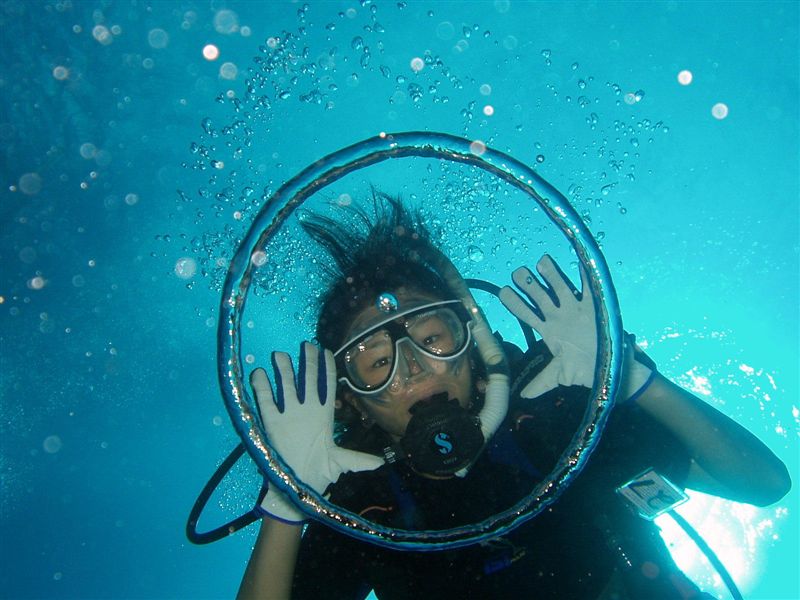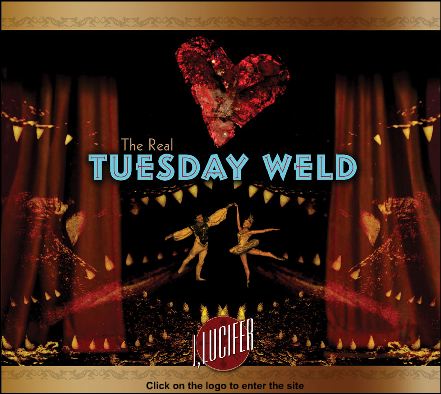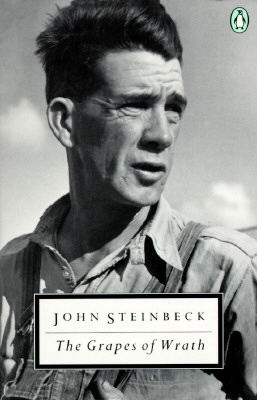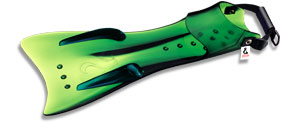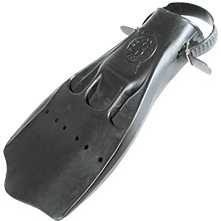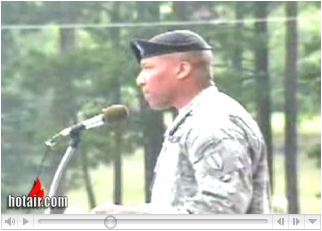He leads us on the way of wisdom's
Everlasting law that truth
Is only learnt by suffering it.
Ah, in sleep the pain distills,
Bleeding on the memory,
And makes us wise against our wills:
God's grace by solemn force.(Aeschylus,
Oresteia)
A selection of quotes from, and ruminations on, Father
Paul G. Crowley's book,
Unwanted Wisdom.
Hope is thus not an "emergency virtue" that would paper over the muck of life. Nor does it suggest merely transcending difficulties, escaping imprisonments through various escapist schemes or by succumbing to the desire for absolutes. For all of these can be forms of denial of reality, and reality cannot be dealt with except by going through it. Hope, therefore, is born in part of an act of imagination, envisioning what cannot yet be seen. As such it is an inner resource, linked, as a sense of comedy is, with an ironic acceptance of the ordinary, even if that ordinary is a convoluted and conflicted reality.
Hope begins with the "help" of finding a way of standing outside oneself , if one can. But, at the same time, it is not a matter of self-help, as if the answer to suffering somehow comes only from within--following the familiar bromide that "God helps those who help themselves." Hope depends, first, on the offer of help, and the mutual recognition that we depend on one another in life-giving ways. In the Isenheim altarpiece, this is poignantly depicted in the hands of Mary, clenched in anguish at the foot of the cross, the consoling hand of John the Beloved Disciple grasping her arm and holding her up. This sense of mutual support, sharing in suffering--what Jon Sobrino and Dorothee Sölle and others would later call "solidarity"--is born, first, from the inward act of taking help--not passively accepting it, but of appropriating it, making it somehow part of oneself. This is the only way we can face and go through reality, as part of a dynamic response to reality and the suffering it entails. We could not hope without help, but help alone, as unappropriated offer, will not facilitate our penetration into the reality of our own lives. Solidarity depends upon acceptance of solidarity, the solidarity of others with us. Something of this insight is certainly at work in the process of psychoanalysis, where the analysand must undertake an active effort to work at appropriating the "help" that comes in the process and through the mediation of the analyst. So, too, in more ordinary and everyday human settings. And this calls for an exercise of imagination, of putting things together in order to be able to see in new ways. (54)
What[. . .] is hanging in the background of the entire project, is a theological conviction that this
humanum is made known in all its aspects in the full mystery of Christ, from incarnation through the cross and resurrection--all that is contained within the Christic imagination.
However, the new self and world that we imagine must belong not to an ideal world, but only to the real. The alternative is an absolute ideal--of goodness or purity or holiness or health--that may have nothing to do with the flesh and blood existence of human beings. What [William] Lynch called the "absolutizing instinct" is the enemy of the human and of hope, leading to a world of false hope, and investing certain aspects of life, especially the moment of death, with an importance disproportionate to their actual weight in the whole of a life. The result can be an exacerbation of the suffering that already exists. In religious categories, this absolutizing instinct can result in calculated theologies, ranging from theories of retribution rebutted in the Book of Job, to the theodicies of the Enlightenment period, that would calibrate the relations between God and humankind so precisely as to reduce them to rational categories. The absolutizing instinct would therefore drive us further away from the real and more toward an ideal of both who we are and who God is in relation to us. We could well end up establishing false gods: personal power, wealth, prestige, repressive political ideologies, and dangerously selective forms of religion. Yet, for Lynch, the "entire good" of religion is to fight the absolutizing instinct. Religions ought to teach people to be able to live in waiting, in ambiguity, in something less than the full light of day." If, therefore, we wish to imitate God, let us make men free." (56-7)
The sentiments expressed in the preceding block quote reflect my feelings towards many Protestant non-denominational churches. I was not surprised to discover that the Roman Catholic Church considers most non-denominational churches to be fundamentalist (* "Most nondenomination "Bible churches" are fundamentalist, as are many communities which claim to be evangelical or Pentecostal" (5).
Catholic Answers to Fundamentalists' Questions.) Having experienced my share of non-denomination churches, I must agree with the position of the Roman Catholic Church. Most non-denominational churches preach a world view that is otherworldly, that is Manichaean, pitting an evil, fallen material world against an afterlife that is pure goodness. Hence, with blinkers on, the immeasurable suffering that goes on in this world pass unnoticed, the "good works" that are so desperately needed, undone; all that matters is the rapture and the
OCD-like longing to get into the next world
ASAP. These
Christians heretics, in my opinion, are the people Don Henley mock in the song, "The Last Resort":
And you can see them there,
On Sunday morning
They stand up and sing about
what it's like up there
They call it paradiseThe cross stands not just as a reminder of the sacrifice that Jesus endured for all humanity, in all ages, but it is also the way to hope, the way to wisdom (though sometimes unasked and undesired). Paradoxically, the cross serves not as a shield against suffering or a means to avoid or numb suffering, but functions much like the cross-hairs for the Christian to encounter suffering head on, to embrace it, to dive headlong into it, to suffer like Christ suffered, in all the little crushing crucifixions of a daily life. But it is not stoicism, despair, or a false front of bravado that is asked of us, but an invitation to solidarity with humanity, for "it is only by driving into the reality of suffering, and not evading it, that one can find a pathway to hope and encounter with the sacred" (86).
The price of the avoidance of suffering is ceasing to love; the cross is the sign that love has not avoided suffering, but entered into suffering in solidarity with the victims of suffering. It is a realistic sign of things as they are, to be sure, and that reality includes the places that love finally leads us into, the forms that love finally assumes, in flesh and blood. And it is in light of this reading of the cross that we find in Jesus' own sufferings, including his utter aloneness and his waiting for the scream to come forth, an active acceptance born of a love that desires to share in the sufferings of others. (74)
Christianity could allow no escape from the real and that is a command of Christian life to enter fully into it. This is the demand of the cross. And if the demand of the cross can only be found by facing and penetrating the reality of suffering which marks the "real" in a Christian theological sense, this is because the real is made sacred by virtue of the incarnation, the entry of God into human flesh and blood.
[ . . . ]
Beset by sin, humanity is in need of a redemption that will be its source of final hope. That redemption is accomplished by the cross, a symbol of the entry into the bloody history of the human race of the saving God of Israel. There is no authentic Christianity apart from the cross. (89)
The Christian, therefore, is entitled, even called, to be a realist, indeed, a kind of "pessimistic" realist, because faith " . . . obliges [us] to see this existence as dark and bitter and hard, and as an unfathomable and radical risk." There are no short-ranged answers to this harsh aspect of reality on the human side of the scale. Only by running the risk of this existence and embracing the sorrows that it brings in its wake, as God in Jesus, can one begin to speak of hope.
Christian pessimism, then, describes the experience of being a Christian within the perplexing and often dark reality of existence. But it is not an everyday sort of pessimism, a despondency bordering on despair, or a thinly veiled cynicism, much less a suppressed rage. No, this pessimism is a "Christian" pessimism because it is precisely in the experience of perplexity that Jesus knew in Gethsemane and on the Cross that the Christian finds hope, not as the possibility of an escape from suffering, but as the locus of the encounter with God. it s within reality that Christian faith believes God to have been most fully revealed in relation to us.
[ . . . ]
One is reminded again of Reinhold Niebuhr: "The mystery of life is comprehended in meaning, though no human statement of the meaning can fully resolve the mystery. The tragedy of life is recognized, but faith prevents tragedy from being pure tragedy. Perplexity remains, but there is no perplexity unto despair. Evil is neither accepted as inevitable nor regarded as a proof of the meaningless of life." (93-4)
With "considerable artifice"--and only for the sake of elucidation--Christian pessimism can be separated into three characteristics: "a constellation of a robust realism, a sense of entanglement in sin, and a surrender to life's uncertainties" (94). I will, however, only expand on the third characteristic with a quote:
AmbiguityThe reality of sin makes our lives morally ambiguous. As [Karl] Rahner states, "[E]ven a person's most ideal, most moral act of freedom encounters tragically into the concrete in an appearance which, because co-determined by guilt, is also the appearance of its opposite." Just as grace meets and transfigures the darkness of life, making room for patterns of goodness, so, too, does guilt in many subtle ways affect the good acts of a good person.
. . . [T]he good act itself always remains ambiguous because of the co-determination of this situation by guilt. It always remains burdened with consequences which could not really be intended because they lead to tragic impasses, and which disguise the good that was intended by one's freedom.What I may intend as a gesture of love may turn out to be an act of selfish domination, one "lured on" by cupidity, to borrow a phrase from Bernard of Clairvaux. Conversely, even the experience of grace is not without ambiguity within the contours of what Paul terms flesh.
This means that free decisions are not always undertaken without complication, even pain. Thus, truly free decisions are painful: "All of [human] experience points in the direction that there are in fact objectifications of personal guilt in the world which, as the material for the free decisions of other persons, threaten these decisions, have a seductive effect upon them, and make free decisions painful."But, under most normal circumstances, painful though they may be, they are not absolutely impossible. There is a path to freedom even in the conditioned and perplexing state within which that exercise takes place. The actualization of freedom can result in either an objectification of grace or an objectification of guilt, or, more usually, some admixture of both. (96-7)
While reading another book,
God's Soldiers: A History of the Jesuits, I came across a passage describing how, when the Jesuit missionary,
Matteo Ricci, was proselytizing to the Emperor of China in the late sixteenth century, the latter found it incomprehensible that Catholics would choose to portray their most sacred god on a crucifix, a punishment reserved for the most heinous of crimes in China. To Christians, the cross symbolizes the sacrifice that God made for us--that He sent His only Son to redeem our sins through death. But Father Crowley's book points out that it goes far, far beyond that. The cross is more than a reminder of Jesus' death and resurrection, and a promise of our eventual resurrection. The cross is a beacon of hope. Hope that is not easily--or painlessly--gotten. For the hope that the cross offers comes only with the acceptance of one's lot, the embrace of suffering, and the ensuing empathy with the collective groaning of humanity. For only then do we experience solidarity: the solidarity with Jesus on the cross--the empathy of God; the solidarity with fellow sufferers. "The cross leads to a focus on the full reality of enfleshed human life, not only my own, but what I share with others; and the destiny of this life, reached through solidarity with others in sharing the human lot" (127).
Putting oneself at the service of the resurrection means working continually, often against hope, in the service of eschatological ideals: justice, peace, solidarity, the life of the weak, community, dignity. . . . And these partial "resurrections" can generate hope in the final resurrection, the conviction that God did indeed perform the impossible, give life to one crucified and will give life to all the crucified. (
Jon Sobrino, S.J.)
Against the backdrop of the horrors of World War II, where people were asking how can so much suffering happen under the gaze of a loving God, the Dominican preacher Gerald Vann wrote:
When I share in the suffering of someone I love, that actual sharing is the expression of something deeper, something permanent: the will-to-share, which is what we call love. And so in the mystery of redemption: the actual sharing is done through the humanity of Christ, but that actual sharing is the expression of deeper and permanent mystery in the Godhead, the will-to-share, i.e., the will to be a companion.And here, Sobrino gives us a beautiful image of what it means to live the resurrection, to do the work of the resurrection, to live in service of it: People of faith in the resurrection show that faith by helping those who suffer, letting them down from their crosses. If the resurrection is the reversal of the cross, it means the end to the sufferings of the cross, and the beginning of new life, a release from those sufferings. This is the
eschatological hope of Christian faith: final freedom from suffering, the wounds of human suffering met by the kiss of God. But this eschatological hope is realized, gradually, in the present times of history, as human beings enter into solidarity with one another, take one another down from their crosses. It is a hope planted in the real, ever in the process of being realized, and only fulfilled in the final (as yet hidden) reality of God. (143)
While awaiting the promised day, we make this world--each day--a better place, a little closer to heaven. This is the hope that I took with me after reading Professor Crowley's book, and this is the hope I leave with you.
Indeed, we can truly say: in this experience of the heart, let yourself seemingly accept with calm every despair. Let despair fill your heart so there no longer seems to remain an exit to life, to fulfillment, to space and to God. In despair, despair not. Let yourself accept everything; in reality it is only an acceptance of the finite and the futile. . . . Do not be frightened over the loneliness and abandonment of your interior dungeon, which seems to be so dead--like a grave. For if you stand firm, if you do not run from despair, if in despair over the idols which up to now you call God you do not despair in the true God, if you thus stand firm--this is already a wonder of grace--then you will suddenly perceive that your grave-dungeon only blocks the futile finiteness; you will become aware that your deadly void is only the breath of God's intimacy, that the silence is filled up by a word without words, by the one who is above all names and is all in all. . . . Notice that God is there. (
Karl Rahner, S.J.)
There are times when the suffering that attends tragic reversal, both in one's own life or in the lives of others, forces upon us a wisdom that is not asked for, not even wanted. But that very wisdom can become a key to a joyful freedom, where one discovers all of a sudden, as if awakened from a long trance, that what once seemed very important simply no longer has any power over us. [. . .] God's accomplishment of this in us, entering into and working through our sorrows and sufferings, is the gift of what [Saint] Ignatius [of Loyola] called the "Contemplatio," the hope of faith fulfilled, not by us, but by God. Precisely by living in and going through our sufferings, we can in fact enter into joy--perhaps a quiet joy, but nevertheless real. The final hope of Christian faith is that this reality, the reality of joy born of suffering, may become good news for all the suffering world. (147)
Selah.






